Best free online coding bootcamps
Some of the best free online coding bootcamps for those in a hurry to kickstart their career in tech

Mike Brassfield

Sign up today and you will receive a free copy of our Future Focus 2025 report - the leading guidance on AI, cybersecurity and other IT challenges as per 700+ senior executives
You are now subscribed
Your newsletter sign-up was successful
Our list of some of the best free online coding bootcamps highlights just how popular coding has become. It's the language of the modern world that’s behind the apps and software that make our everyday lives easier.
To the uninitiated who don’t have a degree or any experience, coding can appear daunting – an obscure and inscrutable jumble of numbers, letters and characters. For those who wish to learn, free online coding bootcamps can be a great way to kickstart their coding journey.
It's important to understand the computer science degree vs coding bootcamp debate before making a decision, as each route is designed to cater for different types of learner, however, it's certainly the case that you don't necessarily need an IT degree to get ahead in the tech industry.
Bootcamps are usually quite expensive, particularly intensive courses. However, there are plenty of free options available that can be just as useful for getting a foot on the ladder.
The courses listed here cover the following programming languages: C++, C#, CSS, Git, HTML, Java, JavaScript, Python, Ruby, SQL, and Swift.
Our list of best free online coding bootcamps has been picked based on a combination of factors, including their community reviews, their convenience, and how flexible they are in their delivery. Our goal is to provide a broad range of options to give a good sense of what is available.
Best free online coding bootcamps
Codecademy
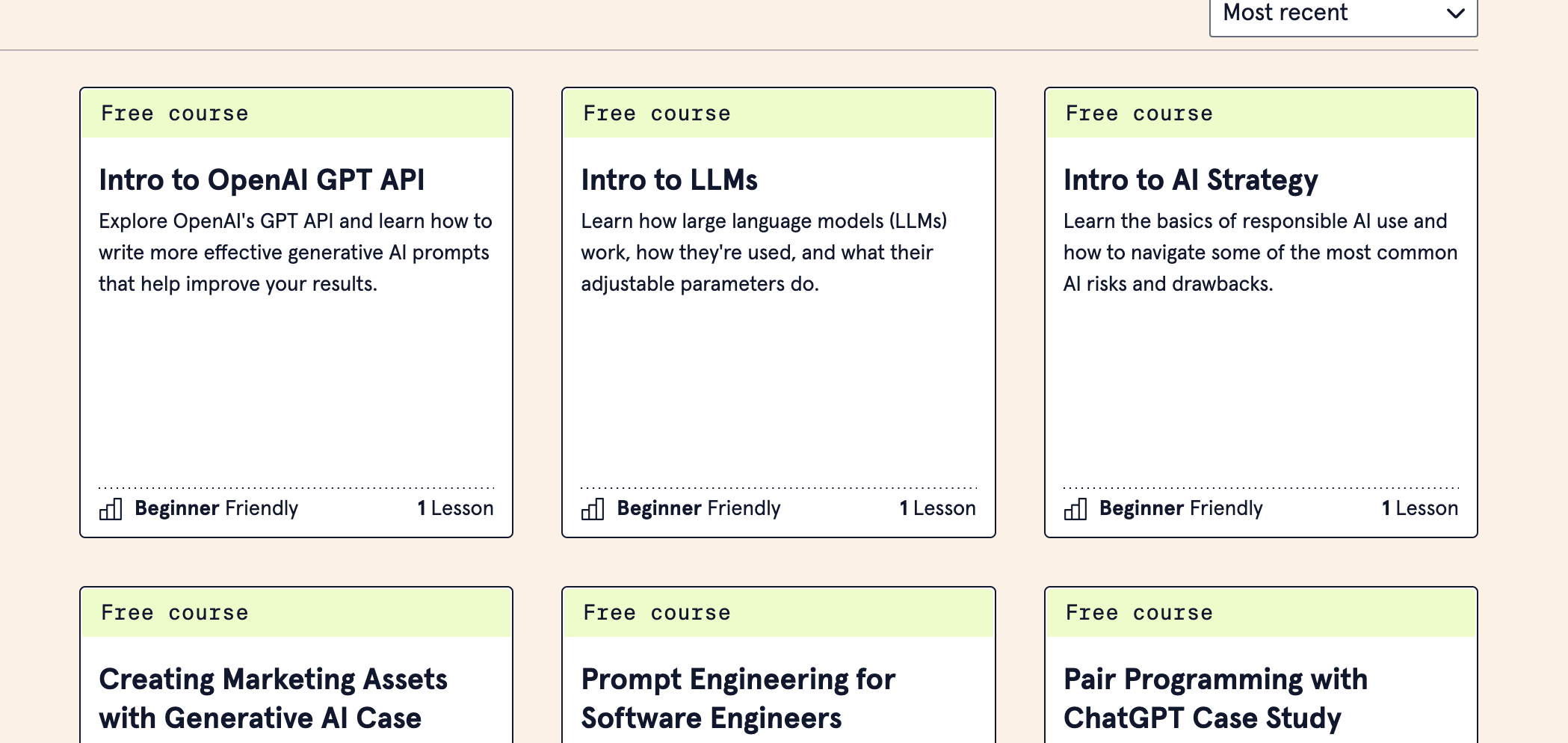
Website link: Codecademy
Kicking off our list best free online coding bootcamps is Codecademy - a US-based website that is probably the most well-known online coding platform, following the ‘teach yourself to code' format. Its current catalog of courses include introductions to generative AI and ChatGPT, as well as lessons on how to use ChatGPT to solve Python code issues.
For those unsure where to begin, there’s a short personality quiz to determine which course might be best based on the respondent’s strengths.
Once the basics have been mastered, those that want to advance their knowledge and skills further can pay £13.99 or £24.99 per month.
Codecademy's mission is to make learning code easy and digestible, and more than 50 million people have taken one of the platform’s courses to date.
Languages: C++, CCS, HTML, JavaScript, Ruby, SQL, Swift and many others
App Academy Open
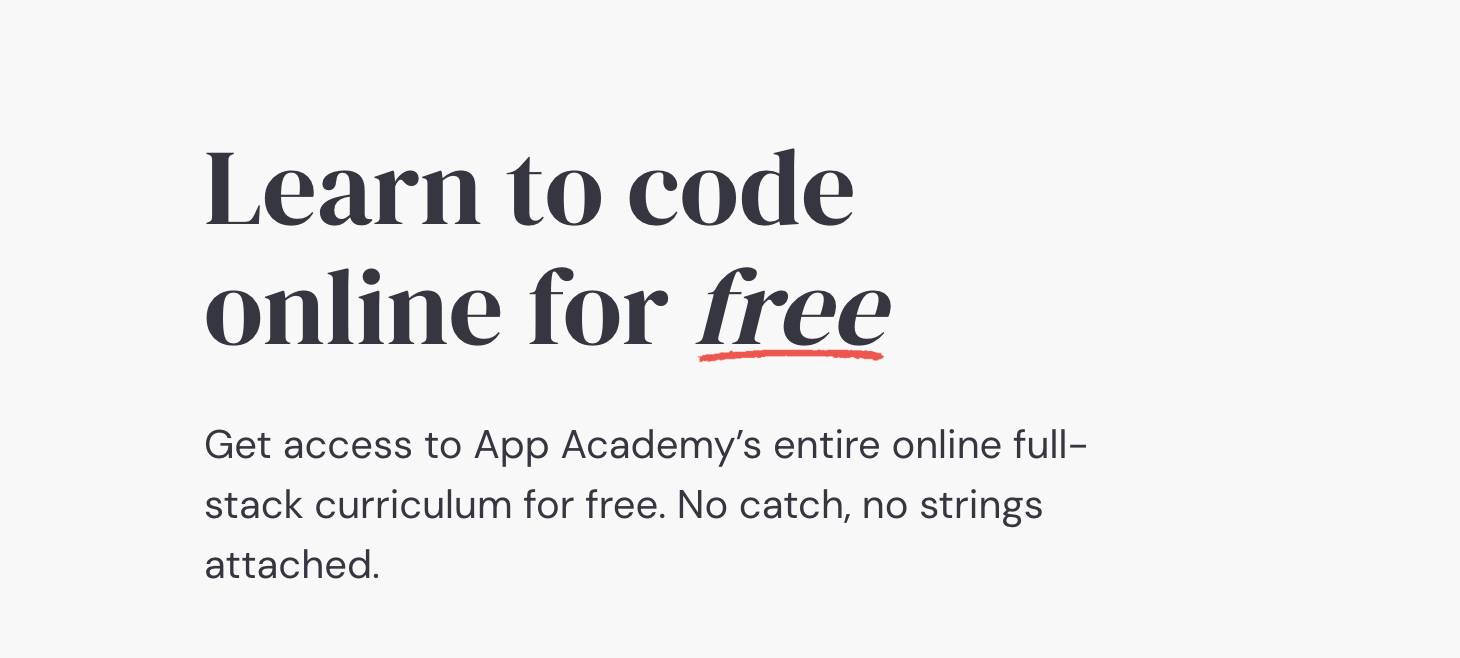
Website link: App Academy Open
App Academy Open is the free version of App Academy’s 24-week-long online software engineering programme, which costs $20,000 upfront.
Open allows those enrolled to study remotely and learn at their own pace. The curriculum offered is the same as the paid tier, and so you will have access to over 500 hours of lessons, with the same learning outcomes.
However, the biggest difference is that the free tier isn't structured in the same way, and doesn’t offer assessments, job search support and access to App Academy’s alumni network.
Former App Academy graduates have gone on to be hired by the likes of Google, Meta and Slack.
Languages: CSS, Git, HTML, JavaScript and many others
Coursera
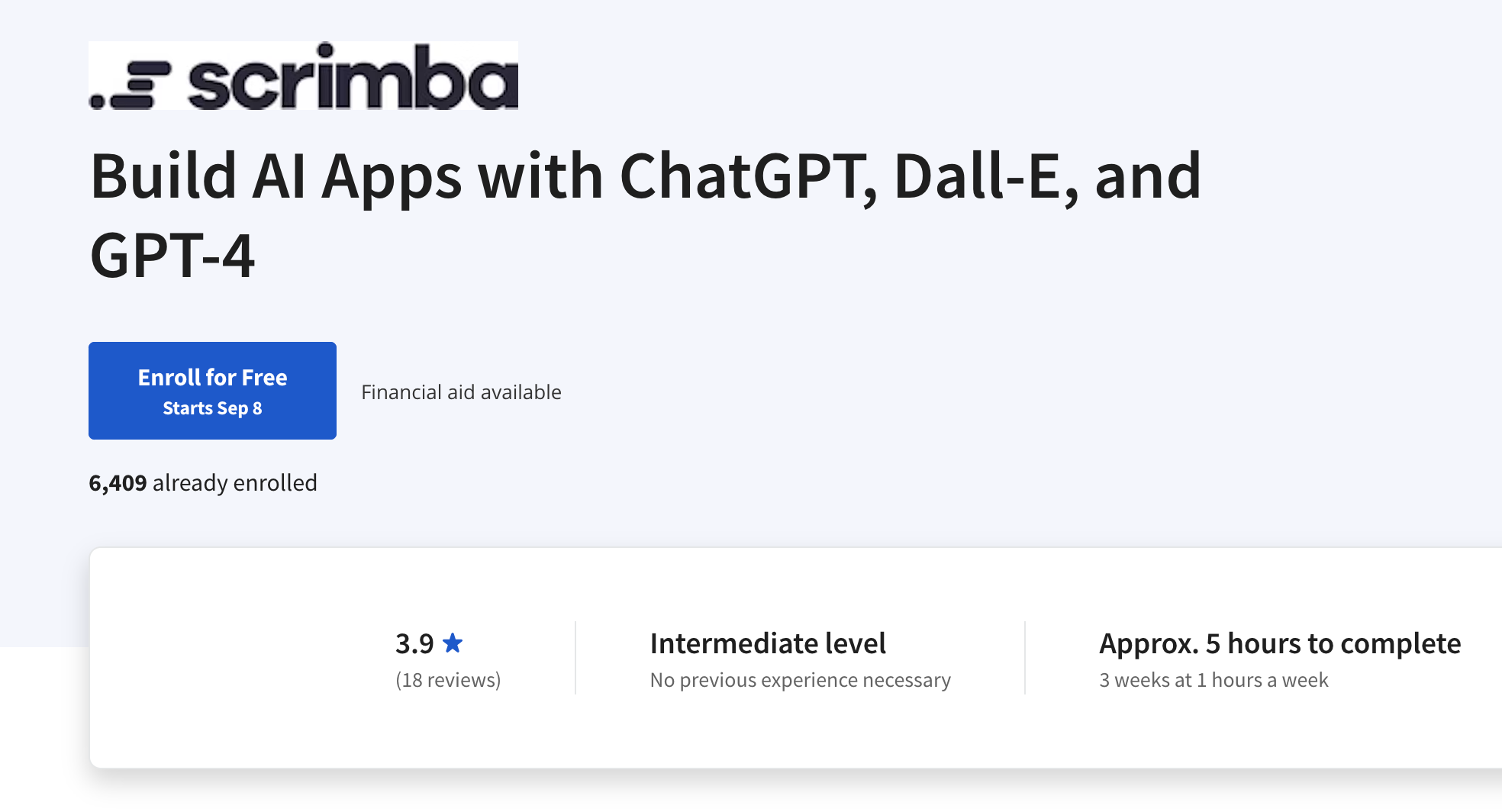
Website link: Coursera
Billed as a virtual university, Coursera has a range of free learning opportunities with lessons delivered by actual lecturers. Current courses include using CSS, HTML and JavaScript to build AI-powered apps and building a chatbot using the ChatGPT API.
There are also professional IT certificates to boost future career prospects to be gained, delivered by professionals from the likes of Google, IBM and Meta. These certificates cost between $39 and $99 per month for the duration of study – online certificate programmes typically take 12 months to complete.
Certified as a B-Corp since 2021 with the aim “to bring flexible, affordable, job-relevant learning to individuals worldwide”, Coursera has become one of most comprehensive learning platforms available today.
Languages: C#, CSS, HTML, JavaScript, Python, JavaScript, SQL and many others
EdX
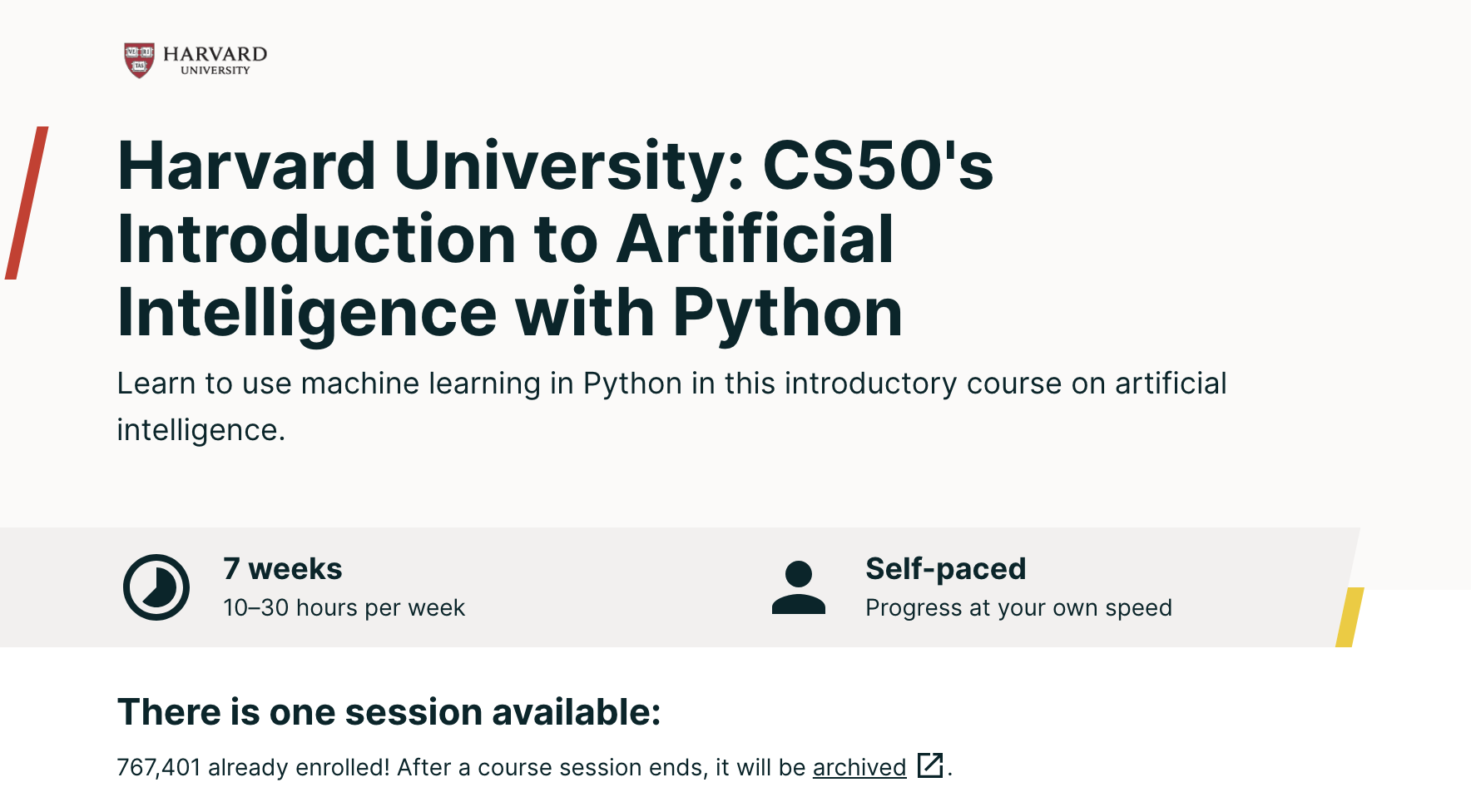
Website link: edX
Like Coursera, edX is an open online course provider, set up by a couple of the major US universities: Harvard and MIT. It has since become regarded as one of the most innovative companies in 2023 for innovation in career learning.
“We're relentlessly pursuing our vision of a world where every learner can access education to unlock their potential, without the barriers of cost or location,” edX states on its homepage.
For beginners, courses offered include introductions to the basics of coding and data science. For those with at least a comprehensive understanding of programming languages, courses include learning how to use machine learning in Python. All courses are self-paced.
Languages: C#, C++, CSS, HTML5, Java, Python
MIT OpenCourseWare
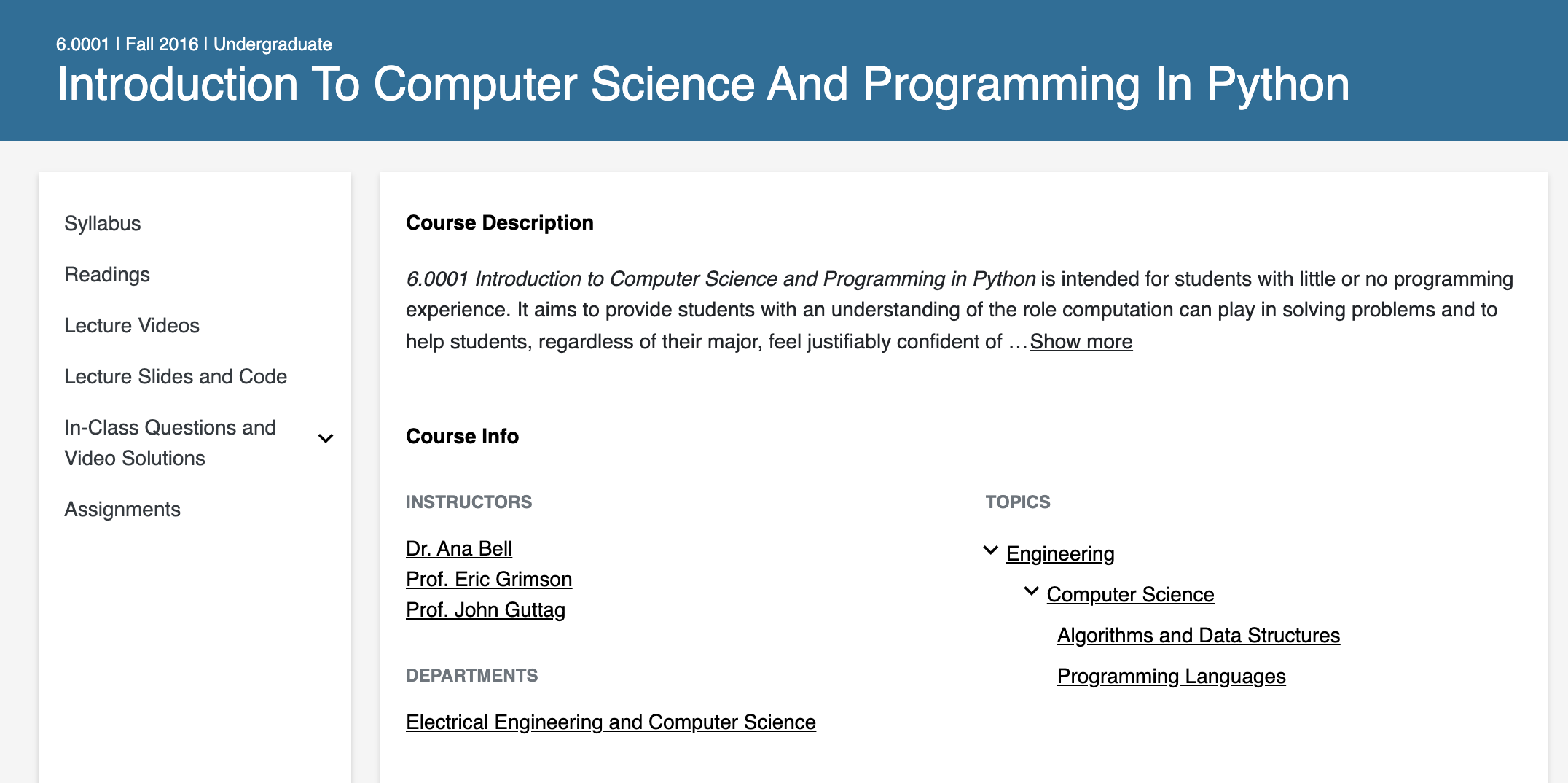
Website link: MIT OpenCourseWare
MIT also offers access to a digital collection of learning materials through MIT OpenCourseWare (OCW).
The introduction to computer science and programming in Python, for example, includes 10 lectures recorded back in 2016 as well as lecture slides and suggested readings.
There’s also an opportunity to test what you’ve learned with questions that the students were asked at the time.
The only downside is that taking an OCW course doesn’t offer the chance to gain an IT certification or credit towards a university degree. That said, it does provide access to materials from over 2,500 MIT courses, so there’s plenty of opportunity to broaden your knowledge base.
Languages: Almost every one
Udemy
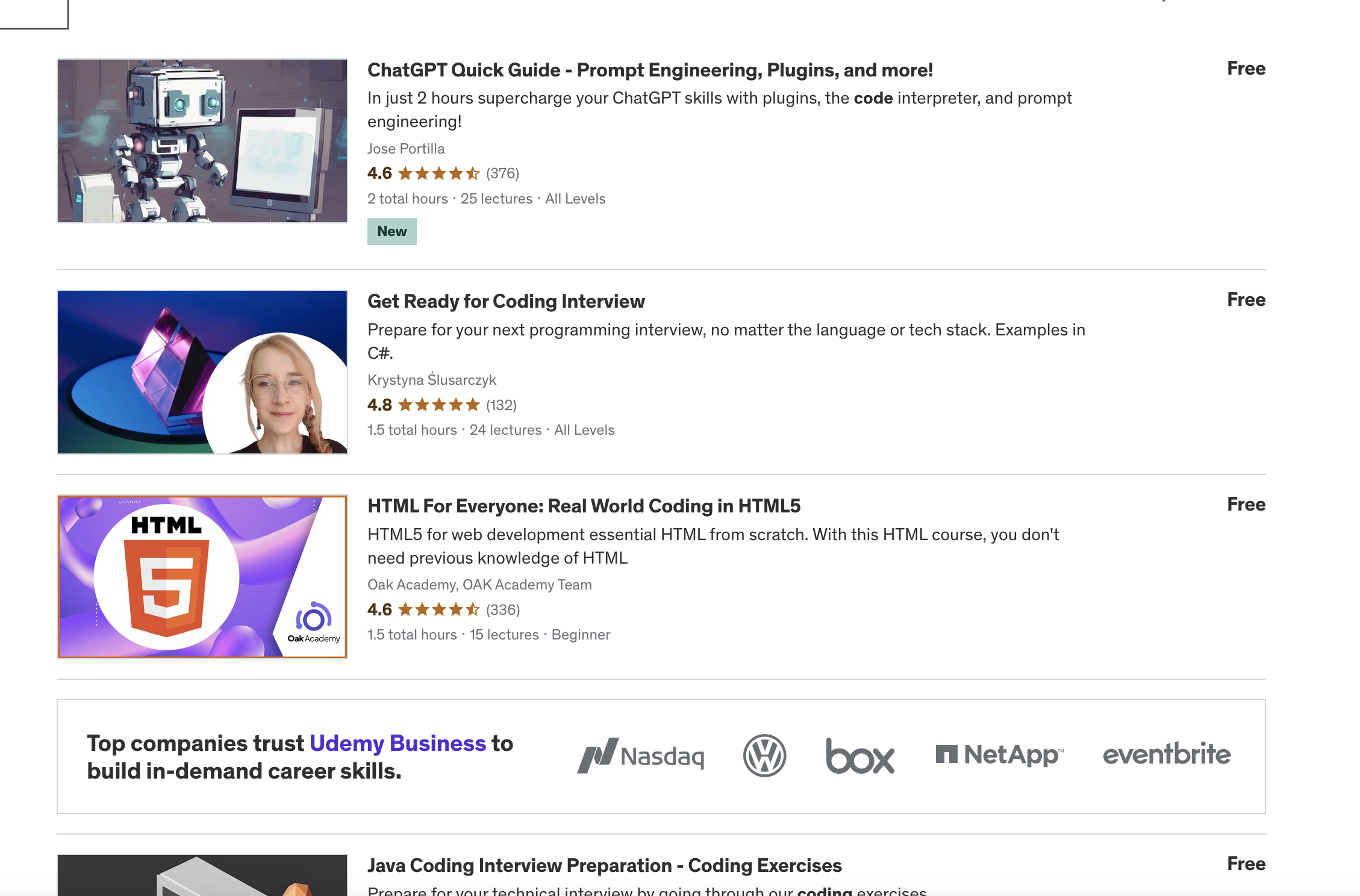
Website link: Udemy
Udemy is a huge edtech platform that boasts over 210,000 online video courses.
While the majority of courses on the platform are paid ones, it has curated a collection of free tutorials described as “bite-sized learning in minutes”. Each course offers reviews that can give you an insight into whether it’s worth your time signing up.
The caveat is that the free courses don’t offer a certificate of completion, nor do they provide access to support from course instructors, so they are generally only useful to those looking to dip their toes into coding.
Udemy's learning tools have been used by the likes of Cisco, HPE, and Samsung.
Languages: C#, CSS, HTML, JavaScript, SQL
freeCodeCamp
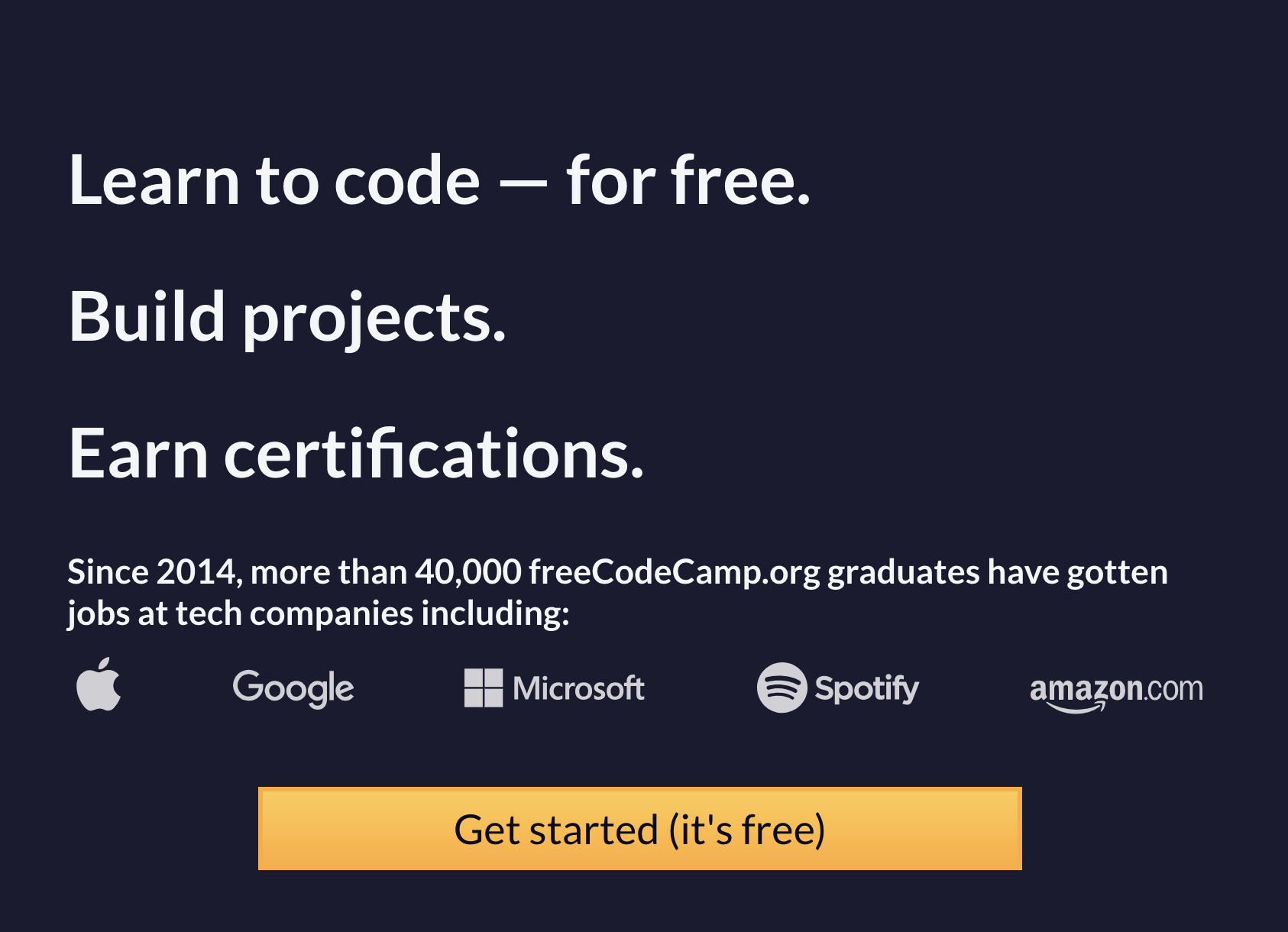
Website link: freeCodeCamp
Unlike others, the non-profit freeCodeCamp gives students the opportunity to gain certifications for free.
One course that launched in August 2023 is an introduction to C# programming, at the end of which you can pass an exam to receive the Foundational C# Certification from Microsoft. All courses are self-paced and each certificate typically requires around 300 hours of learning.
Since 2014, freeCodeCamp has managed to help more than 40,000 alumni get jobs at some of the biggest tech firms, including Apple and Spotify. It's also captured the attention of big tech firms, having secured sponsors such as Google and MongoDB.
Languages: CSS, HTML, JavaScript, Python, Git and SQL
GA Dash
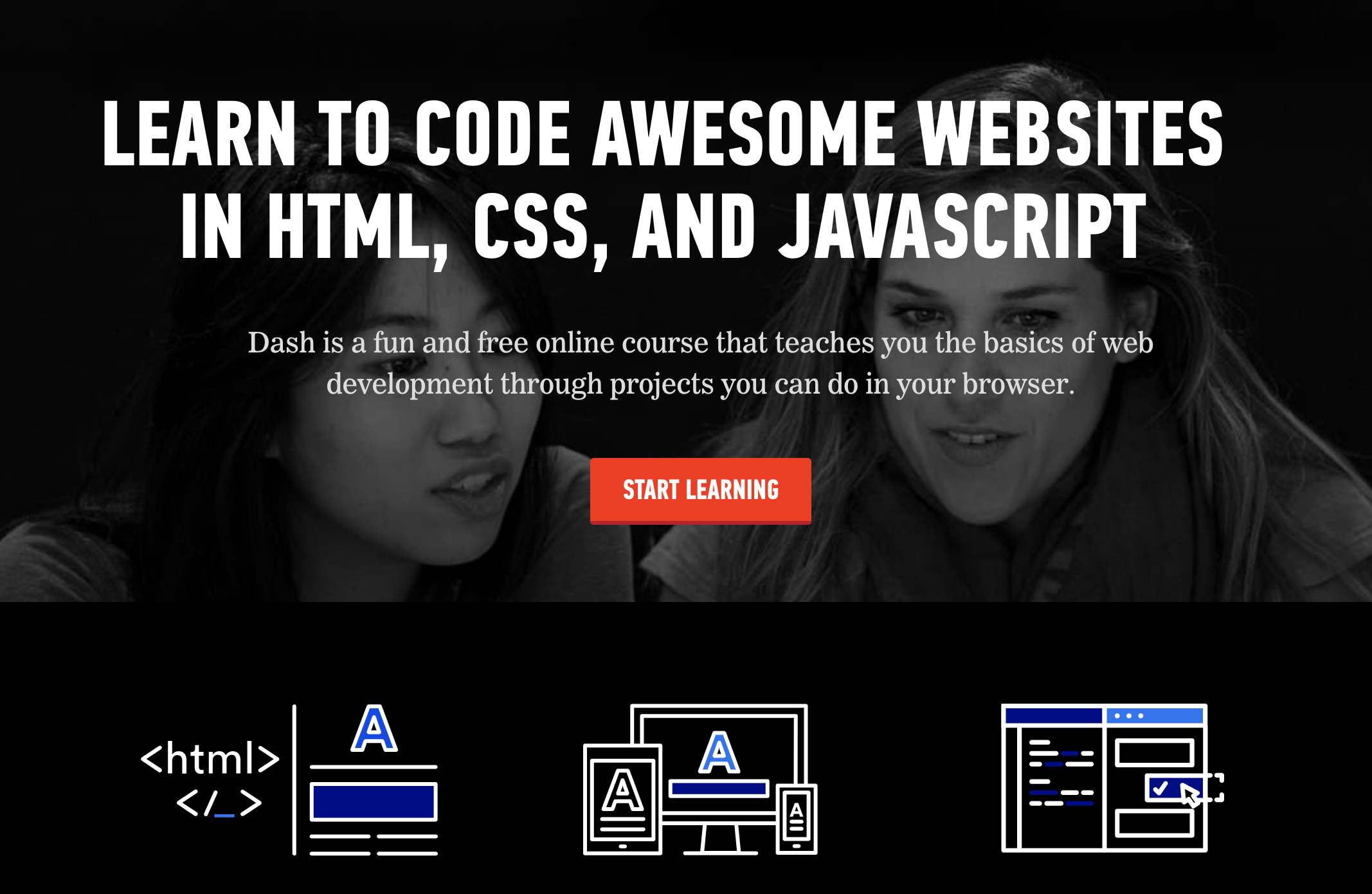
Website link: GA Dash
GA Dash is a free resource created by the bootcamp provider General Assembly. Essentially, it teaches the basics of CSS, HTML and JavaScript.
Though not as intense as a full-fat General Assembly course, GA Dash is ideal for those with limited budgets who are interested in playing with code and learning how to build websites.
Reviews for the course are “generally positive”, according to Career Karma, where General Assembly has an average rating of 4.5/5.
Languages: CSS, HTML, and JavaScript
Khan Academy
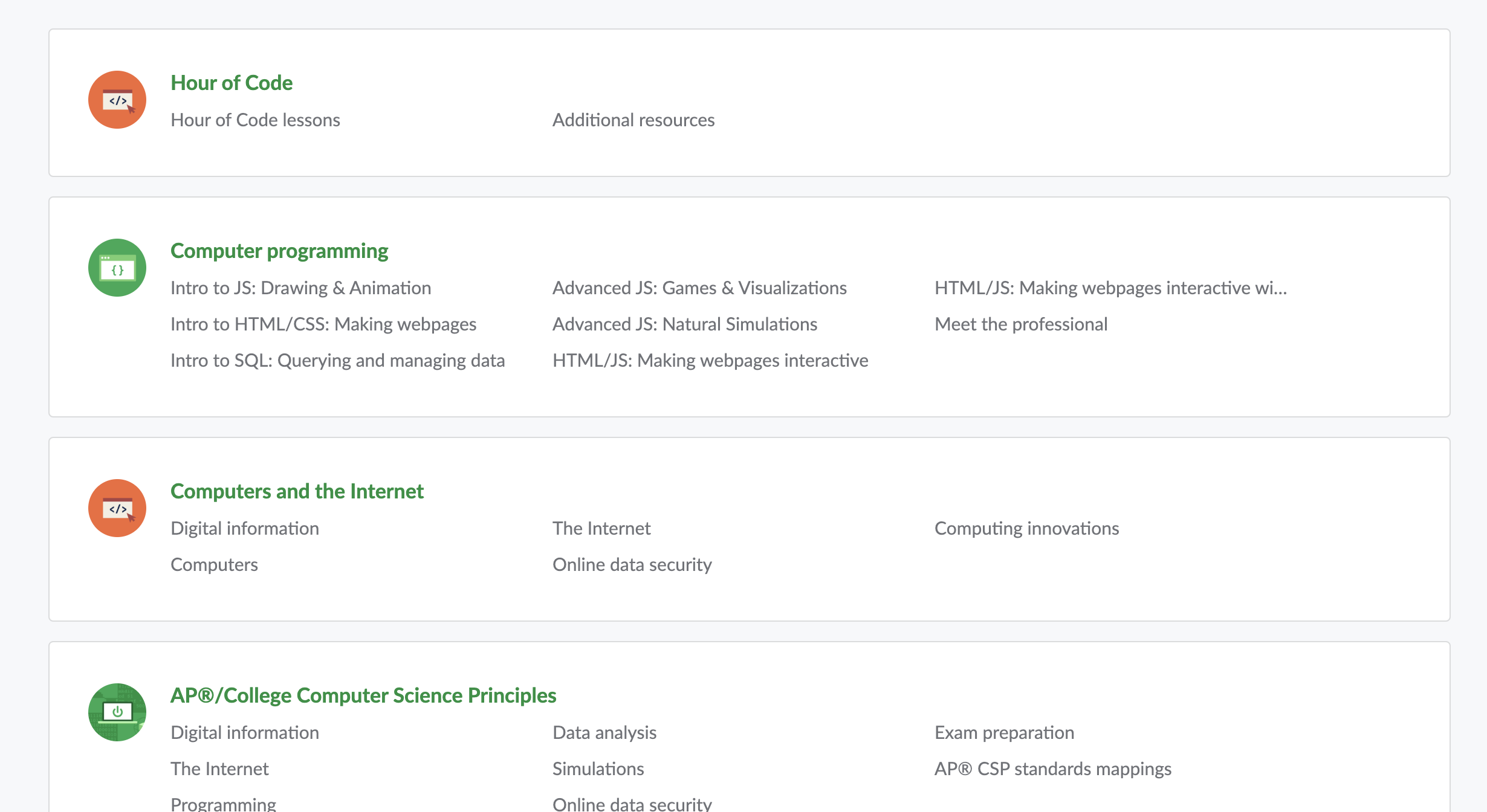
Website link: Khan Academy
The US non-profit Khan Academy, which started out as a YouTube channel, offers a plethora of educational videos, including on how to use CSS, HTML and JavaScript to make webpages interactive.
There are also plenty of resources for school-age students. One Hour of Code is an initiative to encourage children to spend time learning how to programme.
Khan Academy has had a ton of celebrity exposure – The company's founding partner is LinkedIn founder Reed Hastings, while Elon Musk and Jack Dorsey have also pledged donations.
Languages: CSS, HTML and JavaScript
The Odin Project
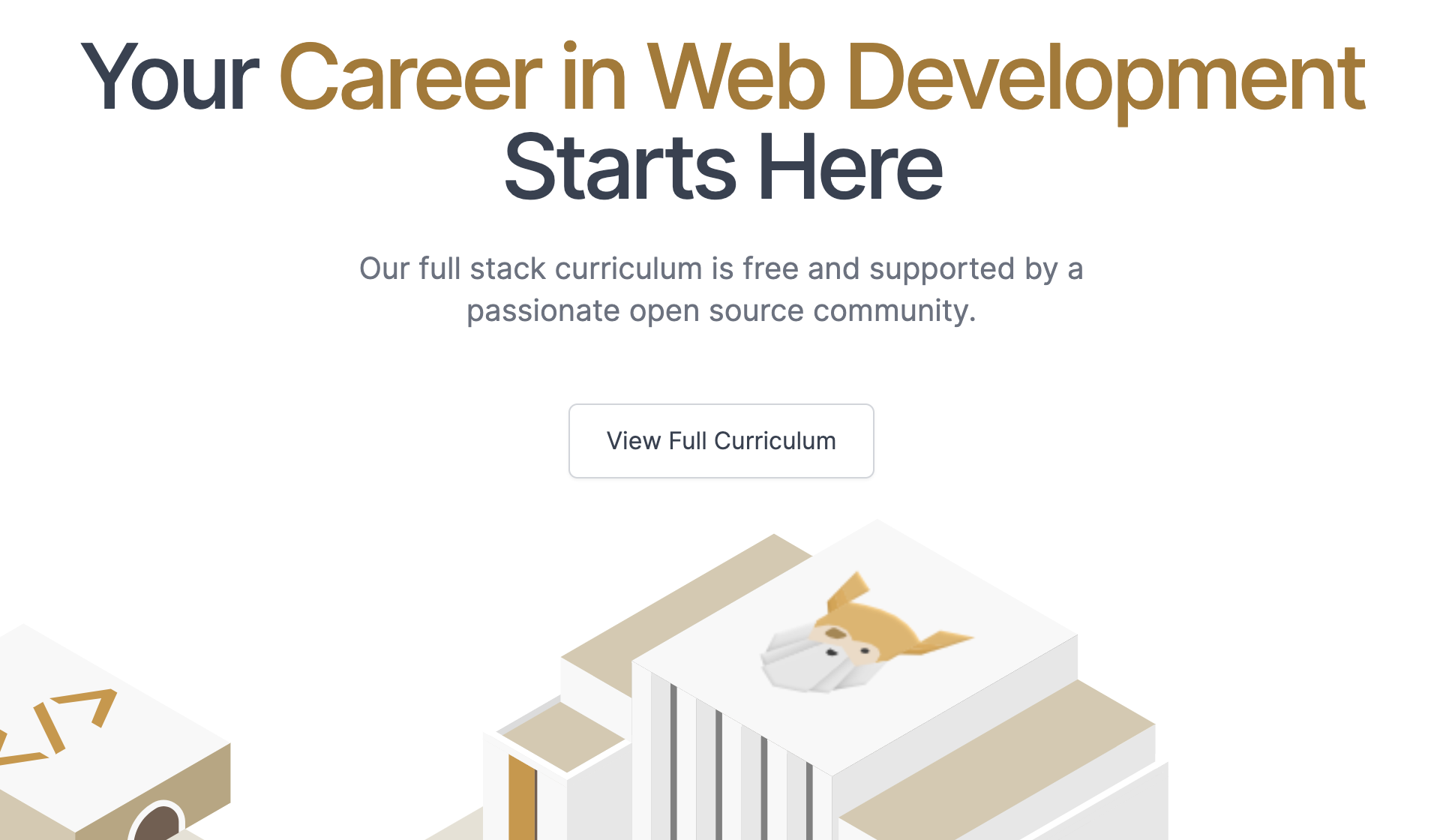
Website link: Odin Project
Set up by App Academy graduate Erik Trautman, the Odin Project is an open source online curriculum for web development. Don’t expect lessons to be as tough as the name sounds, though.
To start with, there’s a foundation course that covers the basics of CSS, HTML, Git and JavaScript. Once completed, there are two pathways to choose from: full stack Ruby on Rails, or full stack JavaScript.
“This is the website we wish we had when we were learning on our own. We scour the internet looking for only the best resources to supplement your learning and present them in a logical order,” the Odin Project website declares.
More than 1.1 million people have studied through this bootcamp, with more than 5,000 people having contributed to its online curriculum.
Languages: CSS, HTML, Git, JavaScript and Ruby on Rails
Sign up today and you will receive a free copy of our Future Focus 2025 report - the leading guidance on AI, cybersecurity and other IT challenges as per 700+ senior executives
Rich is a freelance journalist writing about business and technology for national, B2B and trade publications. While his specialist areas are digital transformation and leadership and workplace issues, he’s also covered everything from how AI can be used to manage inventory levels during stock shortages to how digital twins can transform healthcare. You can follow Rich on LinkedIn.
-
 How the rise of the AI ‘agent boss’ is reshaping accountability in IT
How the rise of the AI ‘agent boss’ is reshaping accountability in ITIn-depth As IT companies deploy more autonomous AI tools and agents, the task of managing them is becoming more concentrated and throwing role responsibilities into doubt
-
 Hackers are pouncing on enterprise weak spots as AI expands attack surfaces
Hackers are pouncing on enterprise weak spots as AI expands attack surfacesNews Potent new malware strains, faster attack times, and the rise of shadow AI are causing havoc
-
 "We want AI to work for Britain": The UK government wants to upskill 10 million Brits in AI by 2030 – and the courses are free to access
"We want AI to work for Britain": The UK government wants to upskill 10 million Brits in AI by 2030 – and the courses are free to accessNews The nationwide upskilling push aims to help UK workers capitalize on the generative AI boom
-
 Lloyds Banking Group wants to train every employee in AI by the end of this year – here's how it plans to do it
Lloyds Banking Group wants to train every employee in AI by the end of this year – here's how it plans to do itNews The new AI Academy from Lloyds Banking Group looks to upskill staff, drive AI use, and improve customer service
-
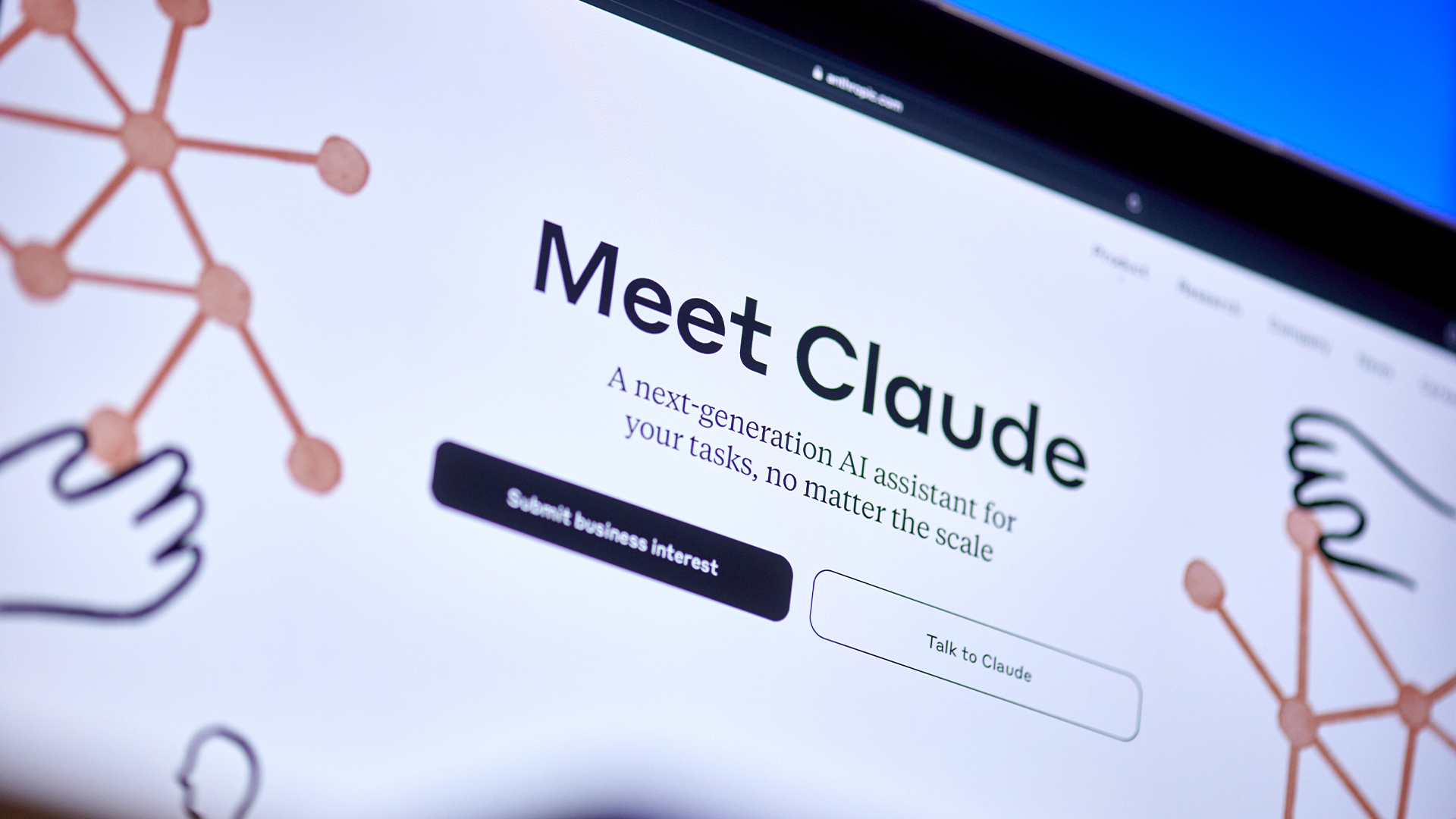 Want to get the most out of Anthropic’s Claude AI assistant? This new training course will give you prompt engineering tips and how to use Claude Code
Want to get the most out of Anthropic’s Claude AI assistant? This new training course will give you prompt engineering tips and how to use Claude CodeNews New Coursera specializations aim to help Claude users of all levels brush up on their skills
-
 AI is redefining roles in the tech industry and forcing Gen Z workers to reassess career paths
AI is redefining roles in the tech industry and forcing Gen Z workers to reassess career pathsNews Gen Z workers remain cautious about AI while industry turbulence is changing their outlook on company loyalty
-
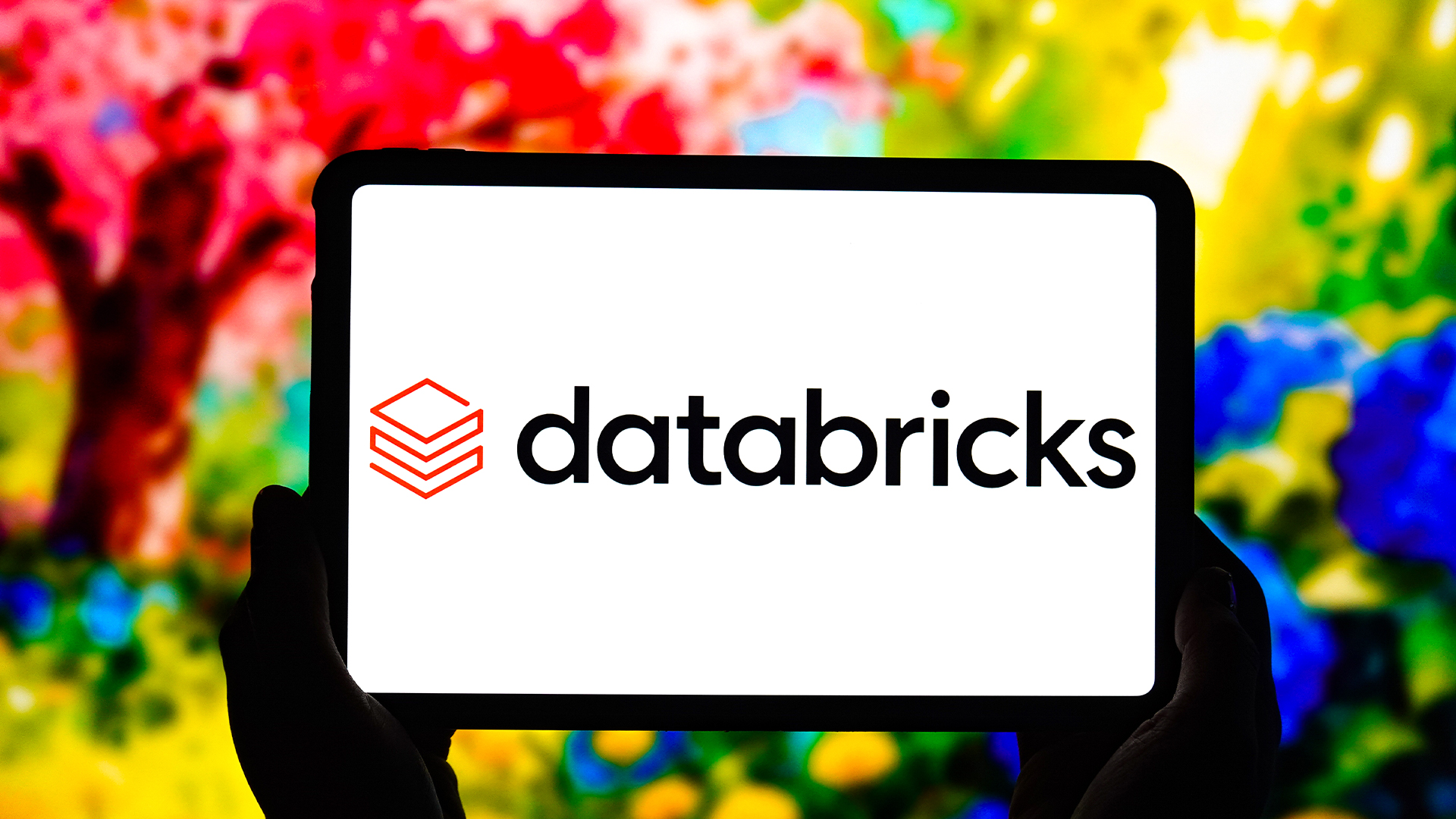 Databricks wants to train 100,000 people in AI across the UK and Ireland – here's how to get involved
Databricks wants to train 100,000 people in AI across the UK and Ireland – here's how to get involvedNews The company will work with government and academic institutions to bolster AI and data skills
-
 IT and business pros call for more tech training
IT and business pros call for more tech trainingnews Projects are being abandoned thanks to a lack of tech skills
-
 Enterprises are concerned about ‘critical shortages’ of staff with AI ethics and security expertise
Enterprises are concerned about ‘critical shortages’ of staff with AI ethics and security expertiseNews Tech leaders are reporting higher demand for AI literacy and “human skills”
-
 Rampant skills gaps should be a ‘wake-up call for every leader’ as AI, tech talent shortages hamper growth
Rampant skills gaps should be a ‘wake-up call for every leader’ as AI, tech talent shortages hamper growthNews AI and broader tech skills are two of the three biggest headaches for tech leaders
